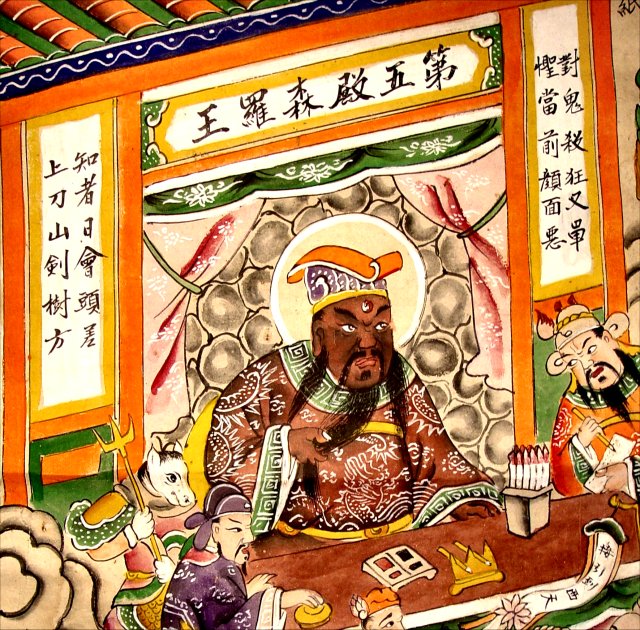
Translations
Magistrate title: Fifth court - King Senluo (a.k.a. "Yanluo" or "Yama")
Couplets to either side of magistrate:
Your encountering ghosts and murderous violence here is all just facing the evil of your past.
One who understands will daily realize that your chief sins become your climb up the knife hill and sword tree.
Banner: Leading off to the Western Heaven
Document: Reward goodness
Appearance in a Taiwanese visit to hell
For a description of Yama from a Taiwanese spiritual medium who had engaged in a series of hell tours between 1976 and 1979, see Voyages to hell, Chapter 31.The Buddhist poet Hanshan from the seventh or eight century warned the living to be wary of Yama, and Robert G. Henricks translates his advice as follows:
I urge you, put an end to your comings and goings;
Never vex him -- old Yama.
Lose your footing, and you'll fall into the three evil paths [of suffering in hell, becoming a hungry ghost or being reborn as an animal];
Your bones will be ground into powder, having been pounded one thousand times!
For a long time you'll be a person in Hell;
Forever cut off from the ways of this life.
I exhort you -- believe in my words;
Recognize, hold on to, the treasure inside your robe.
In more recent times, Keith Stevens describes Yama’s presence in the Chinese afterlife as follows:
Stevens’ description of King Yama as himself not being above karmic law highlights how mechanical the system is, at least within the canonical or "elite" discourse. Unlike Western traditions in which there is often a god over and above creation, here the system is over and above all beings, god-like and otherwise. (In contrast to the canonical discourse, the judges within the more general or "popular" discourse may have much more of their own agency and may even make a lot of mistakes: they are not just anthropomorphized representations of karmic forces.)Consensus agrees that Yen-lo Wang [i.e. King Yanluo] is the supreme Judge of the Courts of the Underworld and not the Lord of the Underworld, and so is no more than the most senior of the Ten Judges, ruling over the Fifth Court. Yen-lo Wang is not the Satan of the Christians and Muslims. He is an honourable soul, still working off his sentence in purgatory himself and whose task is to defeat evil and ensure that souls are properly purged and pure before being reborn. This he does through his bureaucracy by keeping a close record of all merits and demerits earned by humans during their lives. The crimes which bring the soul into his Court are mainly those committed against the Buddhist religions and sexual crimes such as incest. One legend claims that, although he possesses a grand palace, life is not a bed of roses. As he is one of the damned himself, during every twenty-four hour period he is seized thrice by demons, laid flat on a scorching hot metal surface and a stream of molten copper is poured down his throat. After each session he is freed and allowed to amuse himself with female demons until the next punishment is due.
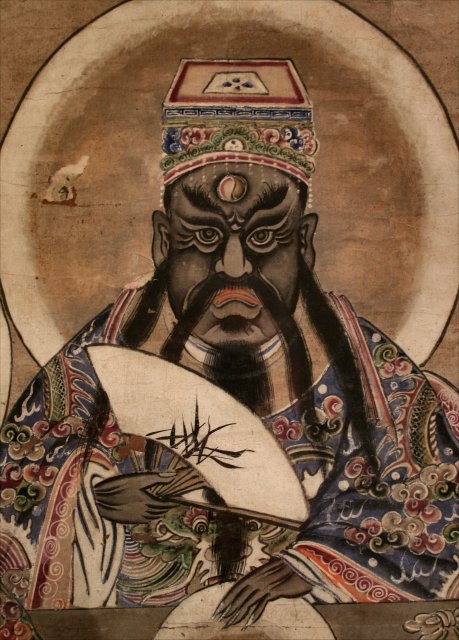
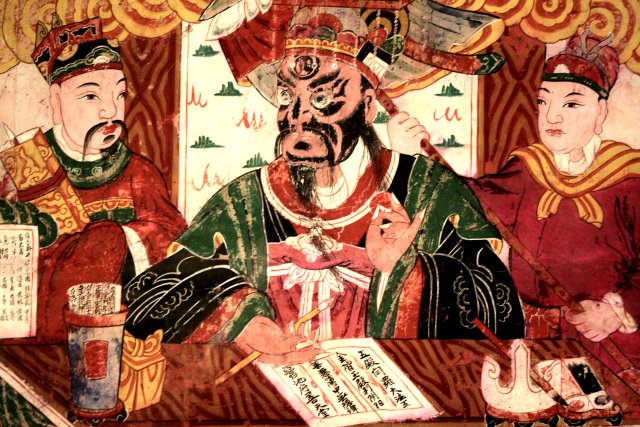
A third example of Yama from another hell scroll (S6).
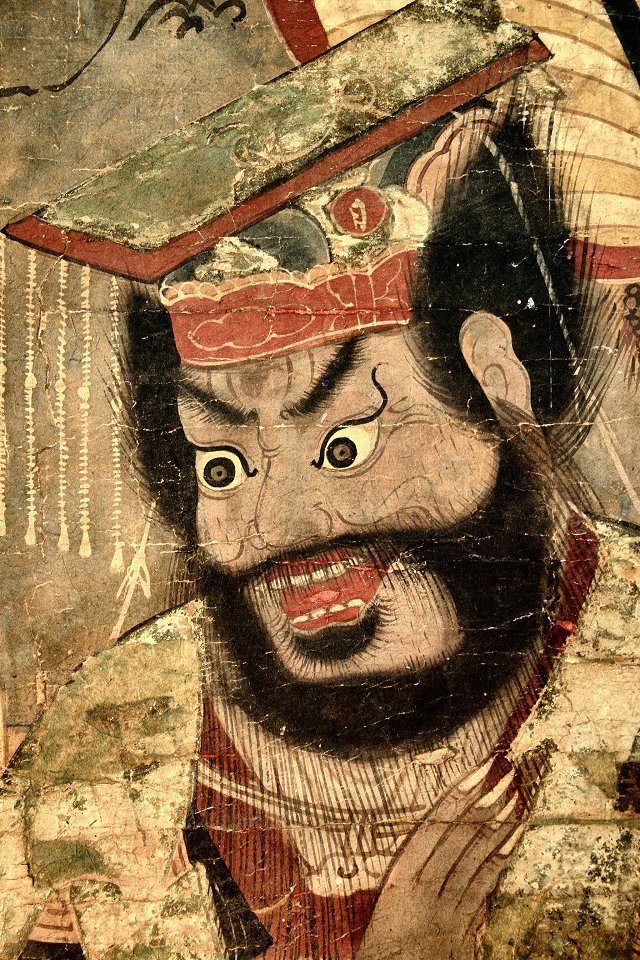
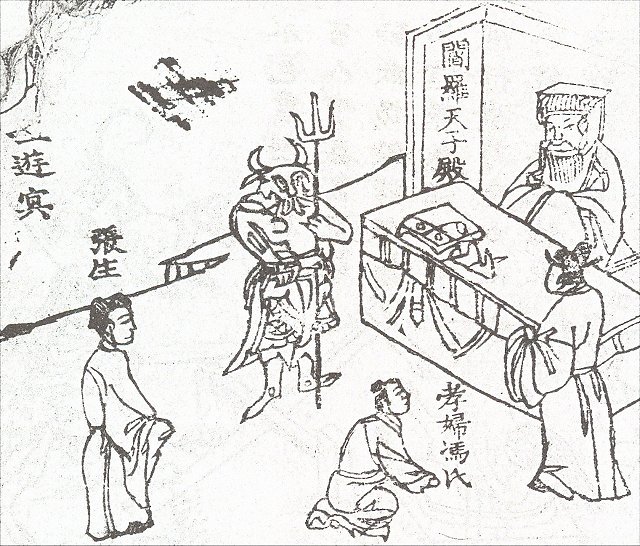
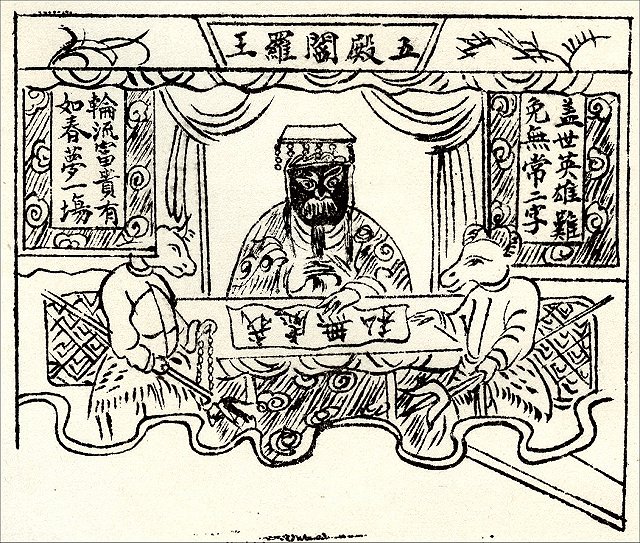
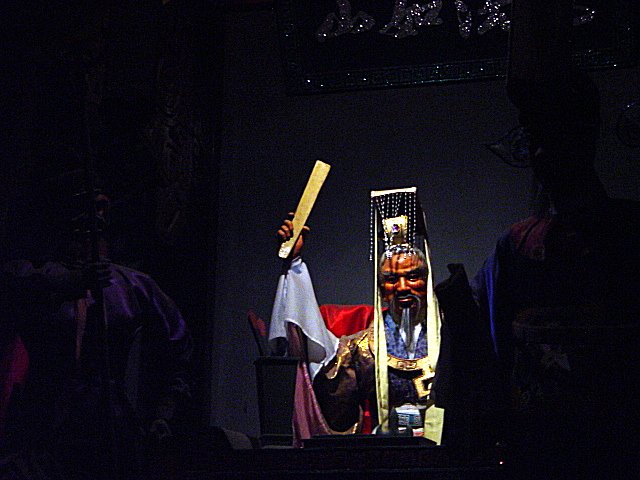
King Yama as depicted at Fengdu, the City of Ghosts.
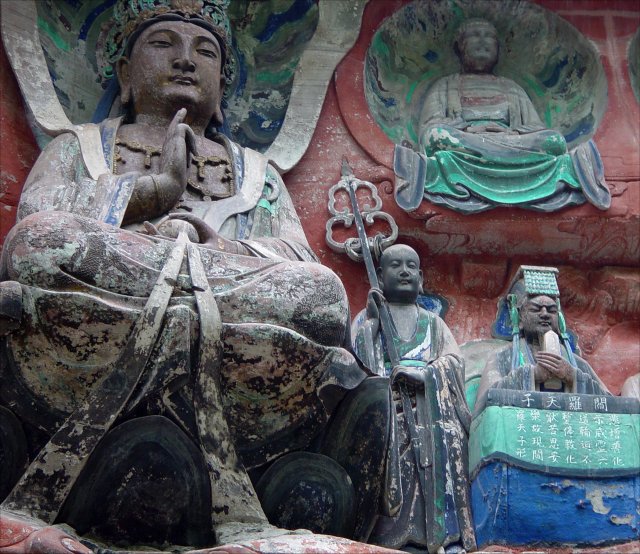
Ksitigarbha, Mulian and Yama (from left to right) as depicted at the Dazu Rock Carvings.